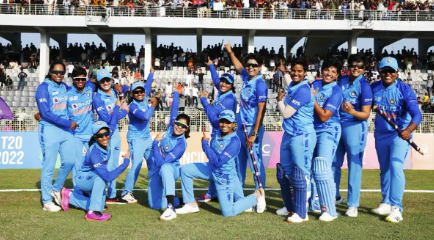
When I quit my full-time job, my then boss wanted to know why. I loved my job, I told her. It gave me a sense of identity and pride. But it also left me with feeling terribly guilty.
My girls were growing up, fast. Most days when I got home, I was just too wiped out for anything more than cursory conversations about brushing their teeth and finishing their homework. Tik tok, tik tok at the back of my head:
I will never get back this time with them again.
Resigning was privilege talking. My salary made a very satisfying thuck when it hit my bank, but none of us was going to starve without it.
I also had help at home. Wonderful, trust-worthy, loving that included a helper who had been with me since the birth of my first child as well as a father-in-law who was so appalled by my decision to quit that he promised to spend even more time with my daughters.
Finally, there was the knowledge that I could continue to write, that I’d have one foot in the door, and so, years before the pandemic made hybrid work a staple expression, I took the plunge.
Yes, there have been regrets, the brief meanderings down the what-if road, missing the camaraderie of the office, even the weak coffee at the morning news conference. But in the end I would do it again. It was worth it after all.
Falling off the employment map

Source: www.istockphoto.com
There is a mountain of data that demonstrates how mothers throughout the world struggle with full-time employment. Economists call this the “motherhood penalty”, this search for a sweet spot between the demands of being a mom and those of a professional career.
Despite a renewed post pandemic conversation on work-life balance, too many jobs continue to demand unreasonably long hours from women as well as men– think of law firms, production houses, hospitals. Work pressures remain, perhaps have even worsened as the boundaries between home and office blur and jobs are slashed across sectors.
Over half the women interviewed in Deloitte’s 2022 Women@Work report felt higher stress levels than a year ago, 46% felt burned out, one in three had taken time off from work due to mental health challenges and 48% reported poor or very poor work-life balance.
In 2017, I began working on a series that cut close to the bone: Why were Indian women quitting jobs in droves?
India’s female labour force participation was (and remains) in crisis. This was mystifying because women were quitting jobs at a time when the economy was growing, fertility was falling and educational attainment by girls and women at its highest ever.

Source: Image bazar
There is another mountain of data that looks at the way men and women spend their time to discover a yawning gap in housework, which obviously is unpaid. To put it another way, the more time women spent on housework, the less time they had to spend it on paid work.
Ironically, India’s most educated women were leaving jobs at the fastest rate. What the hell was going on? Clearly, when they no longer felt an economic compulsion to be in jobs, women, like me, felt it was ok to leave and spend more time with their families.
Not enough in the tank

Which brings us to Jacinda Ardern’s shock announcement to step down as New Zealand prime minister.
Watching her struggle with tears as she made her announcement was personal to me. This is Jacinda Awesome Ardern who took her recently born daughter to the United Nations; whose partner Clarke Gayford has been a stay-at-home dad; a woman who has skillfully put down a constant barrage of misogyny and whose leadership has inspired thousands of women and girls all over the world.
If she doesn’t have “enough in the tank”, who does?
When she gave birth during her first term in office, Ardern acknowledged the challenge but added, “I am confident with all of the support I’m very lucky to have, we will absolutely make it work.”
Now that her four-year-old begins her first year of school, comes the realization that her partner and daughter are “the ones that have sacrificed the most out of all of us”. She said she hadn’t formulated any future plans other than to spend more time with her family.
Women quitting jobs at the prime of their careers is an old story. To use another favourite term of economists, the “leaking pipeline” kicks in a few years down the career path at precisely the time when parents are growing older and children are reaching crucial school years.
The great mystery seems to be why men don’t face the same dilemma. Why aren’t men torn between careers and families? Could it be social conditioning over the centuries that men provide and women nurture (and by the way, I cannot count the number of men who write to me justifying a woman’s “real” job is taking care of her family)? Or is just the internalized guilt we feel (and if so, why don’t men seem to grapple with it?)
I don’t have an answer. I guess I’m just grateful that even in quitting, Ardern has shone a light on a problem that desperately needs attention.
(Women, I really want to hear your story of balancing work and family. Write to me at: namita.bhandare@gmail.com)

In numbers

Source: Theleaflet.com
All over India, 54.4% of Indian women aged 15-59 are primarily engaged in domestic labour. In Bihar, as many as 72.3% are engaged in such labour; the least is in Sikkim with 18.7%.
Source: Centre for Economic Data and Analysis, Ashoka University analysis of the 2020-21 Periodic Labour Force Survey
Seen and heard
“What I’m proudest of as a woman athlete, is to stand up for what’s right.”
Sania Mirza interviewed by Rohit Brijnath The Straits Times before her last career appearance at a Grand Slam.
Going places

Source: PTI
If parades are about sending a message, then women’s empowerment certainly took centre-stage at the 74th Republic Day parade. There was squadron leader Sindhu Reddy saluting smartly as she led the India Air Force’s marching contingent. Lieutenant commander Disha Amrith was at the head of the naval contingent. Three women officers were part of the army contingent, including lieutenant Chetana Sharma who led the Akash missile mechanised column. For the first time, women formed a part of the Border Security Force camel contingent.
Can’t make this s*** up
Gurmeet Singh Ram Rahim, a convicted rapist who also found guilty of conspiracy to murder, is out on his fourth parole. In 14 months.
The head of the Dera Sacha Sauda sect is serving a 20-year jail term–well, on and off–in Sunaira jail, Rohtak district, Haryana and celebrated the birthday of a former dera head by cutting a cake with a sword and a flourish. “I should cut at least five cakes,” he said. Part of the birthday celebrations also included a cleanliness drive that was attended by Krishan Lal Panwar, a BJP Rajya Sabha MP and Krishan Bedi, the political secretary to Haryana chief minister.
Stories you might have missed
A woman’s choice alone

Source: Shuttershock
In a strong statement recognising a woman’s right to live with dignity, Delhi high court judge Swarn Kanta Sharma said that a woman alone holds the right to make reproductive choices about her body. Refusing a woman the right to abortion denies her the right to live with dignity.
The court was ruling on a petition allowing a 14-year-old rape victim to terminate a 25-week pregnancy. The daughter of construction workers had lost crucial time in approaching the court through its legal services committee due to financial constraints.
“In the case of sexual assault, denying a woman right to say no to medical termination of pregnancy and fasten her with responsibility of motherhood would amount to denying her the human right to live with dignity,” the judge said.
Testing times for Karnataka’s girl students who wear hijab

Source: PTI
On Monday, a group of students from Karnataka approached the Supreme Court seeking a directive from it to government institutions to allow them to take their exams wearing the hijab (head scarf). Chief Justice DY Chandrachud said he would consider setting up a three-judge bench to take up the matter in view of a split verdict by the two judges of the previous bench. A new bench is still to be announced.
Ever since the Karnataka high court upheld the state government’s order on uniforms last year, women have been pulled out of state-run institutions, according to reports. Some have been admitted to privately-run colleges which are not bound by uniform rules but the exams, scheduled to begin in the first week of February, can be conducted only in government colleges.
Wrestlers reject probe panel

Source: ANI
India’s top wrestlers have rejected the five-member panel headed by former boxer MC Mary Kom, formed by the sports ministry to probe allegations of sexual harassment and financial impropriety against the Wrestling Federation of India and its president Brij Bhushan Sharan Singh. “We were not even consulted before the formation of this committee,” tweeted Olympic medallists Bajrang Punia and Sakshi Malik and world championships medallist Vinesh Phogat.
…And the good news

Source: https://india.postsen.com/
Back in the 70s, Billie Jean King was famously told: “Nobody wants to pay to watch you birds playing.” To understand how far women’s sport has come since then, look at the money. India’s women cricket players made the BCCI richer by Rs 4,670 crore at the inaugural franchise ownership auction on Wednesday. Adani Sportline, the highest bidder, picked up the Ahmedabad team, one of five, for Rs 1,289 crore.
On the back of the Rs 951 crore capital infusion for media rights by Viacom 18, WPL is now the second most valued league after IPL.
Field notes
How to conduct a sex survey
The fourth British national survey of sexual attitudes and lifestyles (Natsal), claimed to be one of the largest and most detailed scientific study of sexual behaviour in the world, is underway. Involving a sample size of 10,000 people aged between 16 and 59, the survey has been conducted every 10 years from the mid 1980s when the emerging HIV epidemic led to the need for reliable information on the sexual behaviour and attitudes of people living in Britain at the time. Results of this round will only be out in 2025.
With 607 questions that take about an hour to answer, how do you keep that famous British upper lip when asking people about their most intimate details? The Economist has a list: Avoid leading questions, junk judgmental words like “adultery”, and keep a poker face while noting down responses.
Read more in The Economist here.
AROUND THE WORLD
Foreign Policy reports on the gender hunger gap and how, under climate change, women will increasingly be forced to eat less than men. Read more here.
The Oscar nominations announced on Tuesday have led to jubilation around the world, including in India where three films have made the cut. Excluded from the celebrations are Black women who are increasingly vocal about the academy’s diversity problem. Read more here and here.
In Scotland, a transgender woman found guilty of raping two women before she transitioned was lodged in a female prison, leading to a brouhaha. BBC reports that she has since been moved to a male prison.
| Were you forwarded this email? Did you stumble upon it online? Sign up here. |
| That’s it for this week. Do you have a tip or information on gender-related developments that you’d like to share? Write to me at: namita.bhandare@gmail.com |